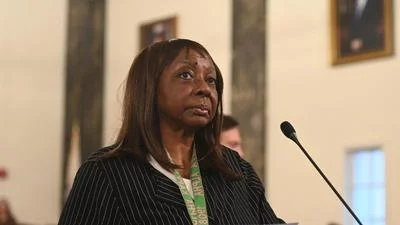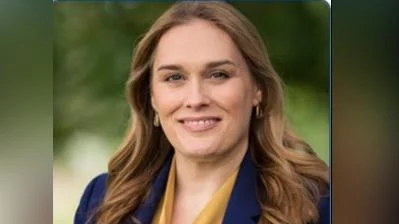State Rep. Ann Williams (D-Chicago) | Repannwilliams.com
State Rep. Ann Williams (D-Chicago) | Repannwilliams.com
Rising energy bills due to the Climate and Equitable Jobs Act are coming to a head as Gov. J.B. Pritzker has announced a planned veto for a bill that would eliminate competition in building power lines.
State Rep. Ann Williams (D-Chicago) expressed worries about the measure's effect on rates, noting that competition generally keeps prices down.
“If you have more competition, generally you keep rates down,” Williams said according to The Center Square. “Across the board, whether it's generation or whatever it might be, it's common sense that a monopoly is usually bad for consumers.”
Pritzker noted he plans to veto the legislation, and its future will be considered later in the year. Ameren has testified in other states that a competitive bidding process often leads to delays and cost overruns. The legislation that would grant Ameren Illinois a monopoly on future high-voltage line construction in downstate service areas is facing significant opposition and is likely to fail.
Current rate increases have led the Citizen’s Utility Board to note this winter could be the costliest in history for Ameren customers. The typical Ameren Illinois residential customer has seen a $626 annual increase in their power bill.
“Higher energy prices (electricity and natural gas) will continue to impact monthly utility bills into the winter heating season. The causes are varied but include a tight supply/demand balance, record low coal inventories and high coal prices driving increased natural gas power generation, and a rise in U.S. natural gas consumption compared to 2021,” Ameren said in June 2022 when prices started rising. “We know this is frustrating for our customers; it's frustrating for us at Ameren Illinois, too. Many people are facing challenging times, and no one wants to see higher energy bills.”
Downstate legislators have vowed action on Ameren’s increased rates. State Sen. Terri Bryant (R-Murphysboro) is one of several Republican lawmakers seeking rate relief for downstate Ameren customers.
“They've got to heat, they've got to eat or they've got to buy their medicine, and that's really what it boils down to,” Bryant said in a press conference, South West Illinois News reported. “The rate increases are because of many factors. But to put it simply, prices are going up because of some global market pressures and capacity shortage in the region.“
State Sen. Chapin Rose (R-Mahomet) Rose said the situation in downstate Illinois is dire.
“Last week in Kincaid, Illinois, an entire grocery store went out of business because they couldn't pay the power bill for their coolers,” Rose said in a press conference. “That community is without a grocery store and I think Rep. (Dave) Severin, when he talks he's got the exact same thing happen in his district, a different place. So this is a significant crisis. It is a serious crisis. Families cannot afford what is happening to them.”
Meanwhile, Pritzker recently announced the allocation of $6 million in funding for the Energy Transition Navigators Program as part of the Climate and Equitable Jobs Act (CEJA), according to Prairie State Wire. The program aims to ensure that historically underserved communities have access to clean energy workforce opportunities by establishing a network of community-based providers across the state. These providers will offer community education, outreach, and recruitment services to encourage priority populations to participate in CEJA clean energy workforce and contractor development programs. The Energy Transition Navigators will be selected through a competitive process, and once selected, they will play a crucial role in providing outreach, recruitment, and support services to diverse populations and individuals affected by energy transitions. The program aims to create an accessible and equitable pathway for Illinoisans to participate in the clean energy economy while addressing barriers to success such as transportation, childcare, and other related services.






 Alerts Sign-up
Alerts Sign-up